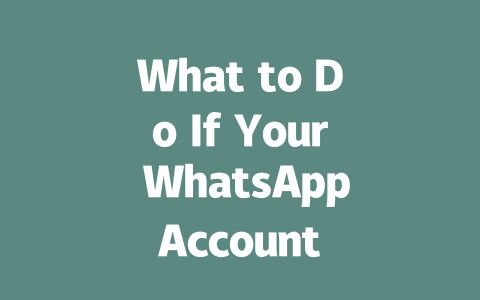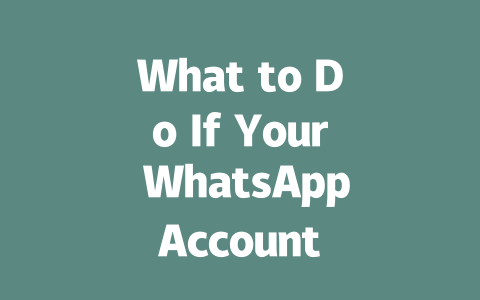You know that feeling when you want to stay updated but there’s just so much happening all over the world? You might end up scrolling endlessly through headlines, social media feeds, and news websites. It’s exhausting, right? But what if I told you there are smarter ways to keep up with the latest news without burning yourself out?
Today, I’ll share some strategies that I’ve personally tried—and refined—to help you get the most important updates without losing your sanity. These tips don’t require any fancy tools or tech skills; they’re practical solutions for anyone looking to optimize their news consumption habits.
Why Staying Updated Matters (But Can Be Tough)
Let me start by saying this: staying informed is crucial in today’s fast-paced world. Whether it’s about global politics, economic shifts, or even the latest tech trends, knowing what’s going on around you can make a big difference in how you navigate life. For example, last year, my friend missed an important policy change affecting small businesses because he wasn’t paying attention to the right sources. By the time he caught up, it had already impacted his business negatively.
However, here’s the catch—there’s simply too much information out there! Between fake news, clickbait headlines, and overwhelming notifications, it’s easy to feel lost or skeptical about what you read. So, how do we strike a balance? Let’s dive into actionable steps.
Here’s What Works (And What Doesn’t)
This might sound obvious, but trust me, it makes a huge difference. Instead of subscribing to dozens of newsletters or following every news outlet under the sun, narrow down your options. Focus on reputable sources known for accuracy and impartiality. Some examples include:
Why does this work? Because reliable sources save you from chasing after rumors or misinformation. Personally, I stick to three primary outlets and check them once or twice daily. This way, I avoid being bombarded with repetitive or irrelevant stories.
Another mistake people often make is letting themselves get sucked into endless scrolling. Do you find yourself mindlessly refreshing apps like Twitter or Reddit just to see “what’s new”? That’s a trap!
Instead, set aside specific times during the day to review the news. For instance:
I use a timer app to remind myself when it’s time to stop browsing. It sounds simple, but it works wonders in keeping me focused.
Alerts can be both helpful and harmful depending on how you use them. While they ensure you never miss critical updates, having too many notifications can lead to stress. My advice? Customize alerts based on priority.
For example:
A study published on Harvard Business Review highlighted that limiting distractions improves productivity and mental clarity. So, why not apply this principle to your news routine?
Building a Smarter News Diet
Now let’s talk about structuring your news intake more effectively. Think of it like meal planning—you want variety, balance, and portions tailored to your needs. Below is a breakdown of categories and recommended sources to consider.
Categories and Sources Table
| Category | Recommended Source | Frequency | Best For |
|---|---|---|---|
| Global Politics | BBC News | Daily | In-depth analysis |
| Technology | TechCrunch | Weekly | Emerging trends |
| Business | Bloomberg | Bi-weekly | Market insights |
This table gives you a quick snapshot of where to focus depending on your interests. Remember, it’s okay to adjust these recommendations based on your personal preferences.
Tips for Verifying Information
One final piece of advice before we wrap up—always verify the credibility of the information you consume. With misinformation running rampant online, double-checking facts has become essential. A few quick tips:
Google itself emphasizes the importance of accurate, trustworthy content. In fact, their official blog mentions that high-quality articles contribute significantly to user satisfaction. Following these guidelines ensures you remain well-informed while maintaining peace of mind.
If you try any of these methods, drop me a line—I’d love to hear which ones worked best for you! Or maybe you have other tricks up your sleeve? Let’s chat.
If your WhatsApp account gets hacked, the first thing you need to do is act fast. Don’t just sit there wondering what went wrong—jump into the app’s settings and change your password right away. It might feel like a hassle, but trust me, it’s better than leaving things as they are. After that, take a moment to set up two-step verification if you haven’t already. This adds an extra layer of protection, making it harder for someone to break in again. Oh, and don’t forget to review all the devices linked to your account. You can find this under the “Linked Devices” section. If there’s anything unfamiliar, log out of those sessions immediately. Sometimes hackers leave traces behind, so cleaning up is essential.
Now, about recovering those messages you might have lost during the hack—it really depends on your backup habits. If you’ve been using cloud backups through Google Drive or iCloud, restoring your chats shouldn’t be too hard. Just follow the prompts within the app, and you’ll get most of your conversations back. But here’s the tricky part: if you didn’t enable backups or only rely on local ones, you’re limited to restoring messages from the past 5-12 hours. That’s why setting up regular backups is so important. And while we’re talking about prevention, let’s not ignore the fact that tracing who hacked you isn’t easy. Sure, you can check recent sign-ins under your account settings, but catching the actual hacker usually involves law enforcement and advanced tools. Reporting suspicious activity to WhatsApp support is always a good idea though—they’re better equipped to handle these kinds of situations.
#FAQ Section#
#
What are the first steps to take if my WhatsApp account is hacked?
If your WhatsApp account is hacked, immediately change your account password through the WhatsApp settings. Then, enable two-step verification to add an extra layer of security. Review all linked devices and sessions from the app’s menu, and log out of any unfamiliar ones.
#
Can I recover messages lost due to a hack in 2025?
Recovering lost messages depends on whether you have backups enabled. If cloud backups are active, restore your chats from Google Drive or iCloud. For messages lost within the last 5-12 hours, try restoring from local backups if available.
#
Is it possible to trace who hacked my WhatsApp account?
Tracing hackers requires advanced forensic tools and cooperation with authorities. Basic steps include checking recent sign-ins under “Account” settings and reporting suspicious activity to WhatsApp support for further investigation.
#
How do I prevent my WhatsApp account from being hacked again?
Prevent future hacks by regularly updating the app, avoiding phishing links, and enabling strong authentication methods like two-step verification. Educate yourself about common hacking techniques and stay vigilant against scams.
#
Should I inform contacts if my WhatsApp account was hacked?
Yes, informing your contacts helps them avoid falling victim to fraudulent messages sent via your account. Send a direct message warning them about potential scams and advise them to update their own security settings.




